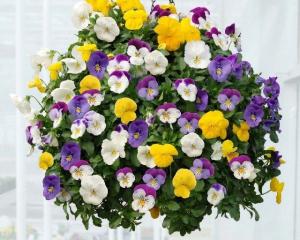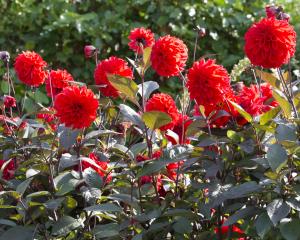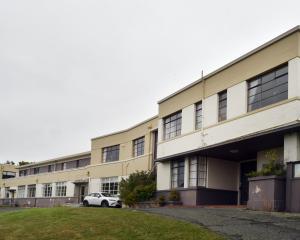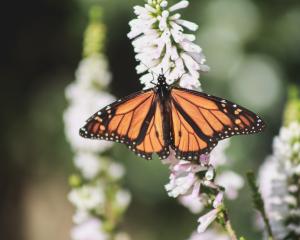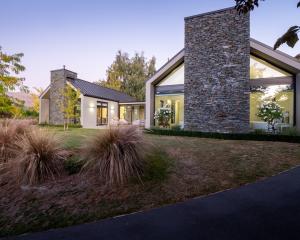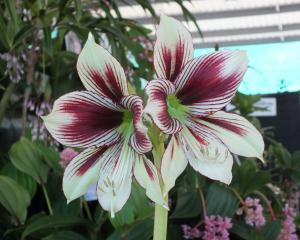
Ben Elms sheds a little light on turning waste into black gold.
You'd think composting was a no brainer. Historically we've grabbed every nutrient source we can get our hands on and we will again in the not too distant future (including all that nutrient goodness you flush down the toilet with fresh drinking water!).
The "in the garbage, out of sight, out of mind mentality'' is a modern sickness, one of modern capitalism's epic failures. So it's great to see some positive action.
The French recently passed a law making it illegal for supermarkets to dump food into landfills. The beauty of composting in a world of broken promises and environmental precipices is that compost is one of those things you can take control of.
We can take a step forward, put our hands up and take responsibility for our own waste stream - though "waste'' is the wrong word to use here.
All that food "waste'' and garden or green "waste'' isn't a waste at all. These materials can supply us with a river of rich nutrients in the form of compost and mulch.
Don't go thinking "my food scraps don't add up to much''. Collectively, our compostable food and garden waste adds up.
It's estimated the average person in New Zealand produces 180kg of organic waste a year, at least 30% of our refuse bag every week. Composting puts the money for the rubbish collection service back in your pocket. And you've done a little less global warming.
Food scraps and green garden clippings produce methane if they break down in a landfill. Methane is a potent global warming gas, 22 times stronger than carbon dioxide.
Composting and gardening are very much entwined and complementary, especially when we think of all the green (and brown carbon-rich) goodies that our gardens produce, year in year out.
Some people will have a kerbside compost collection and others will make the effort to take it to a commercial composting (green waste) centre.
Still others will throw it over the fence or, if the section is big enough, have a dark corner for the "dump and forget'' method. In damper climates this can be a very effective method, and your forgotten clippings can eventually turn into black-gold compost.
If you are removing all that organic matter from your biosphere, what are you bringing in to create your lush Eden? Are you buying compost or grabbing a bag of inorganic fertiliser?
I want to encourage you, if you can, to compost all your own green garden scraps. At the very least use them in your garden in other ways. Try not to use any chemical fertilisers.
I read a great quote the other day along the lines of "fertilisers feed the plant, compost feeds the soil''.
Most fertilisers are like fizzy sugary drinks, all bang then bust. We need to create soils that can sustain and grow healthy plants. Compost is your magic.
● Ben Elms (aka Dr Compost) will have a stall at the Queenstown Home Show this weekend and the Wanaka A&P Show in March. The Dr Compost project is funded by Queenstown Lakes District Council and delivered by Wanaka Wastebusters to reduce organic waste going into landfills.
It's so good

Here's why compost is great for the garden:
• Compost is a great way of getting carbon/organic matter into the soil. Think global warming. Soils are a great way to address the carbon problem. There is a finite supply of carbon in the world, so by trapping it in our soils in the form of organic matter, it is a win-win.
• Compost has the ability to hold massive amounts of moisture in our soils. Humus is king! Organic farming pioneer the Rodale Institute reports that 1kg of carbon can hold up to 40kg of water. Increasing carbon content increases the ability to retain water. That's great when we're in another drought year. It's also good when meters and user pays for water are increasing.
• Compost provides a full spectrum of nutrients to your plants' roots. It's the ultimate fertiliser, with the big three: nitrogen, potassium and phosphorus. Also present are a whole load of other trace minerals that healthy plants need. Most fertilisers focus on the big three, but plants, like us, need a broad and varied spectrum of minerals.
• You're creating good soil life. Check the soil foodweb online. Compost is actually made up of billions of microscopic bacteria and fungi. We're inoculating and encouraging our soils with life. We want plants to be able to grow their roots in our great soils and feed themselves.
• With great compost and great soils, we are growing healthy plants, less likely to suffer from disease and insect attacks. Disease and pests attack the weak. It's nature's way.
• Compost can help regulate soil acidity and is number one when it comes to improving soil structure.
Using compost
Top tips to use compost
• By all means go large throwing it on your vege beds. But a more effective way is to keep adding ‘‘skiffs'' of 1cm-3cm of compost on a regular basis. Every time a bed has finished cropping, ‘‘skiff'' away.
• For heavy feeders such as tomatoes, corn, pumpkins, zucchini and the big brassicas (broccoli and cabbage), at least once during the season give them their own personal compost treatment, anything from one to six generous handfuls a plant. We're not just thinking about this crop, we want to leave the soil in better shape than we started. If we carry this ethos to all our beds, our soils will just get better and better.
• Mimic nature. In nature nutrients generally originate from above-ground materials, e.g. leaf litter and manure. But I do like to chuck some extra in the hole now and again when planting certain crops. For every clove of garlic a handful of compost goes in the hole. Every tomato plant gets two or three handfuls, or more if it can be spared, as well as some on the soil surface.
• If your compost is looking a bit chunky and twiggy then use it as a mulch. It will continue to break down, releasing valuable nutrients and slowing water evaporation and keeping the soil temperatures lower on hot days.
• It's not all about the vegetables. Flower beds will benefit from your generosity, applying a 5cm layer once a year. Cover that with a mulch: grass clippings will do the trick.
• Fruit trees love compost, but by now you're probably scraping the bottom of the compost pile. So consider some green compost in the form of cut comfrey leaves or living compost in the form of lupins growing around your fruit trees fixing nitrogen in the soil. These plants can also be cut back and used when you're making a compost pile.
• A sprinkle of compost will do wonders for your lawn. You've just hit the bonus button: more lawn mowing leads to more compost making.
• Pot plants inside and out can often be forgotten. Sprinkle 1cm-2cm of compost three times a year. If need be, scrape a little of the top layer of soil away and replace with the compost. When repotting and root trimming, put some compost or a 50:50 mix of compost and potting mix in and around the roots.
Gardening workshops
• Get Gardening through the winter
Get Dr Compost's tips from more than 20 years of local growing experience. Best crops, cloches, optimal planting times. All welcome, novices through experts, free workshop.
Queenstown: Shotover Garden Centre, 150 Frankton-Ladies Mile Highway (SH6), Wednesday, February 24, 6-8pm
Wanaka: St John's Rooms, 4 Link Way, Thursday, 17 March 17, 6-8pm.
• Get Composting
Reduce your waste to landfill and make compost to feed your garden. Find a composting system to suit you; traditional composting, worms and/or Bokashi buckets. Free workshop.
Queenstown: Shotover Garden Centre, 150 Frankton-Ladies Mile Highway (SH6), Wednesday, March 2, 6-8pm.
Wanaka: St John's Rooms, 4 Link Way, Thursday, March 31, 6-8pm.

